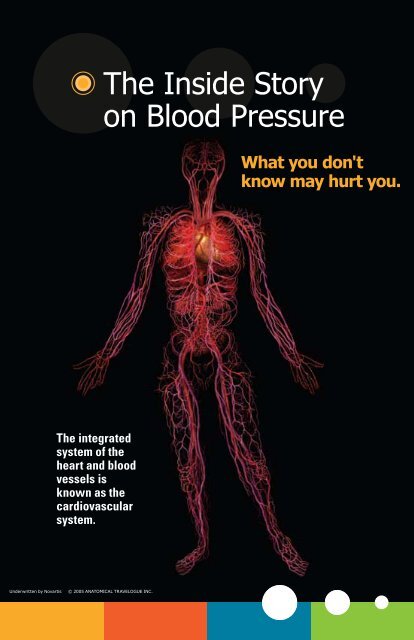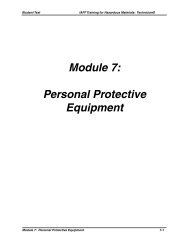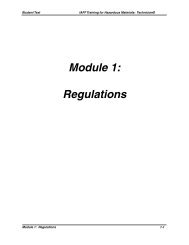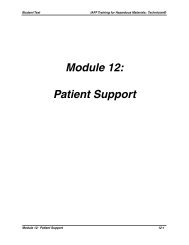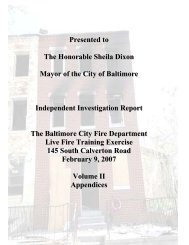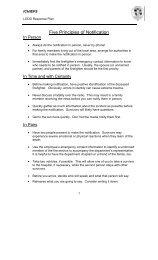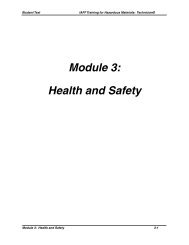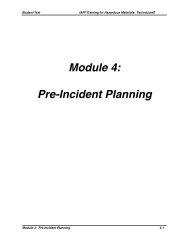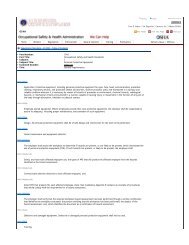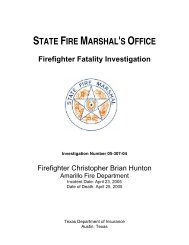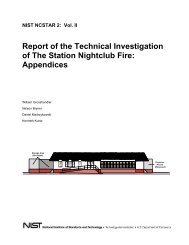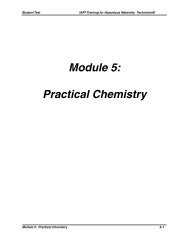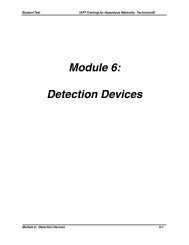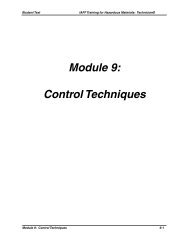The Inside Story on Blood Pressure - International Association of ...
The Inside Story on Blood Pressure - International Association of ...
The Inside Story on Blood Pressure - International Association of ...
Create successful ePaper yourself
Turn your PDF publications into a flip-book with our unique Google optimized e-Paper software.
<str<strong>on</strong>g>The</str<strong>on</strong>g> <str<strong>on</strong>g>Inside</str<strong>on</strong>g> <str<strong>on</strong>g>Story</str<strong>on</strong>g><br />
<strong>on</strong> <strong>Blood</strong> <strong>Pressure</strong><br />
What you d<strong>on</strong>'t<br />
know may hurt you.<br />
<str<strong>on</strong>g>The</str<strong>on</strong>g> integrated<br />
system <strong>of</strong> the<br />
heart and blood<br />
vessels is<br />
known as the<br />
cardiovascular<br />
system.<br />
Underwritten by Novartis<br />
© 2005 ANATOMICAL TRAVELOGUE INC.
Why should I care?<br />
DID YOU KNOW?<br />
<strong>Blood</strong> pressure is NOT just<br />
a number.<br />
• Your heart will beat about 100,000 times today<br />
• Every heartbeat pumps blood through your body’s blood vessels.<br />
This moves blood throughout your body, bringing a needed supply<br />
<strong>of</strong> oxygen and nutrients<br />
• <str<strong>on</strong>g>The</str<strong>on</strong>g> sound <strong>of</strong> each heartbeat is really the noise your heart<br />
valves make as they close<br />
• Even though you can’t feel it, high blood pressure may cause<br />
damage to your arteries<br />
Do you know why your doctor checks your blood<br />
pressure? It is checked because it is <strong>on</strong>e <strong>of</strong> the vital<br />
signs that indicates how well your body systems<br />
are working. By asking what your blood pressure<br />
reading is every time it is taken, you’ll know what’s<br />
up with your blood pressure and know if you need<br />
to make changes to manage it.<br />
<strong>Blood</strong> pressure is created by the force <strong>of</strong> blood pushing<br />
against the walls <strong>of</strong> the arteries as it circulates and<br />
the force <strong>of</strong> the arteries as they resist the blood<br />
flow. High blood pressure is dangerous because it<br />
forces your heart to work harder than normal and<br />
causes damage to blood vessels. If left untreated,<br />
high blood pressure can lead to serious health<br />
problems like heart attack, heart failure, kidney<br />
damage, visi<strong>on</strong> problems, and stroke. That’s<br />
why it’s important to manage your high blood<br />
pressure. This guide will explain why you need to<br />
know your blood pressure numbers, and what you<br />
can do to get your high blood pressure to goal.<br />
Healthy Kidney<br />
<str<strong>on</strong>g>The</str<strong>on</strong>g> top half <strong>of</strong> the image<br />
shows the inside <strong>of</strong> the<br />
kidney. <str<strong>on</strong>g>The</str<strong>on</strong>g> bottom half<br />
shows the outside.<br />
Underwritten by Novartis<br />
© 2005 ANATOMICAL TRAVELOGUE INC.<br />
KIDNEY DAMAGED<br />
BY HIGH BLOOD<br />
PRESSURE<br />
High blood<br />
pressure has<br />
damaged the<br />
kidney causing<br />
scar tissue to<br />
develop.<br />
2 3
Why should I care?<br />
Take your blood pressure<br />
seriously.<br />
<strong>Blood</strong> pressure varies during the day, based <strong>on</strong><br />
your activities and stress. If your blood pressure<br />
c<strong>on</strong>sistently stays above a certain level, you may be<br />
diagnosed with high blood pressure by your doctor.<br />
If your doctor tells you that you have high blood<br />
pressure, it’s important to your health to follow your<br />
treatment plan.<br />
DID YOU KNOW?<br />
• Most people with high blood pressure do not have any symptoms<br />
• Feeling fine does not mean you do not have high blood pressure<br />
Healthy retina<br />
Many tiny blood vessels<br />
supply the retina.<br />
High blood pressure does not go away<br />
<strong>on</strong> its own.<br />
Many people need a combinati<strong>on</strong> <strong>of</strong> lifestyle<br />
changes and taking a prescripti<strong>on</strong> medicine to bring<br />
their blood pressure under c<strong>on</strong>trol. By managing<br />
your blood pressure, you can limit the extra work<br />
your heart needs to do to move blood throughout<br />
your body.<br />
It may sound a little scary but instead <strong>of</strong> worrying,<br />
take acti<strong>on</strong>.<br />
damaged retina<br />
High blood pressure can damage your eyes. <str<strong>on</strong>g>The</str<strong>on</strong>g> red spots show<br />
blood that has leaked into the retina from blood vessels.<br />
Underwritten by Novartis<br />
© 2005 ANATOMICAL TRAVELOGUE INC.<br />
4 5
What does it mean?<br />
Cardiovascular made simple.<br />
<str<strong>on</strong>g>The</str<strong>on</strong>g> term cardiovascular system is not as<br />
complicated as it sounds.<br />
It is the medical term for your heart (cardio) and<br />
blood vessels (vascular). This system is made up<br />
<strong>of</strong> your heart and blood vessels, including arteries,<br />
veins, and capillaries. Its job is to transport oxygenand<br />
nutrient-rich blood from your heart to every<br />
part <strong>of</strong> your body and remove waste that your body<br />
does not need, such as carb<strong>on</strong> dioxide.<br />
the heart<br />
<str<strong>on</strong>g>The</str<strong>on</strong>g> heart works as a pump to move<br />
blood through the body.<br />
What’s going <strong>on</strong>?<br />
<strong>Blood</strong> is carried from the heart to all parts <strong>of</strong> the body in<br />
vessels called arteries. <strong>Blood</strong> pressure is created by the<br />
force <strong>of</strong> blood pushing against the walls <strong>of</strong> the arteries as<br />
it circulates and the force <strong>of</strong> the arteries as they resist the<br />
blood flow.<br />
DID YOU KNOW?<br />
• A half hour <strong>of</strong> moderate<br />
intensity activity 5 times<br />
a week—such as jogging,<br />
dancing, and team sports—<br />
can have health benefits*<br />
* Always talk to your doctor before beginning any exercise program.<br />
Underwritten by Novartis<br />
© 2005 ANATOMICAL TRAVELOGUE INC.<br />
6 7
What does it mean?<br />
<strong>Blood</strong> pressure is made up <strong>of</strong> 2 important<br />
numbers.<br />
<strong>Blood</strong> pressure is measured in millimeters <strong>of</strong><br />
mercury (mmHg), a special unit that measures<br />
pressure. It is recorded as 2 numbers usually<br />
written 1 above the other.<br />
• <str<strong>on</strong>g>The</str<strong>on</strong>g> top number is the systolic blood pressure.<br />
It is the highest pressure measured in the arteries,<br />
when the heart beats. A reading <strong>of</strong> less than<br />
120 mmHg is c<strong>on</strong>sidered normal for most adults<br />
• <str<strong>on</strong>g>The</str<strong>on</strong>g> bottom number is the diastolic blood pressure.<br />
It measures the pressure in the blood vessels<br />
between heart beats when the heart rests.<br />
A reading <strong>of</strong> less than 80 mmHg is c<strong>on</strong>sidered<br />
normal for most adults<br />
Know your numbers.<br />
Normal blood pressure for most adults is where the upper<br />
(systolic) number is less than 120 mmHg and the lower<br />
(diastolic) number is less than 80 mmHg. This is written<br />
as less than 120/80 mmHg.<br />
High blood pressure is where the systolic is c<strong>on</strong>sistently<br />
140 mmHg or higher, OR the diastolic is c<strong>on</strong>sistently<br />
90 mmHg or higher. This is written as greater than or equal<br />
to 140/90 mmHg. Depending <strong>on</strong> the health c<strong>on</strong>diti<strong>on</strong>s you<br />
have, your doctor may tell you that you have high blood<br />
pressure when your numbers are less than 140/90 mmHg.<br />
Ask your doctor what numbers are best for you.<br />
<str<strong>on</strong>g>The</str<strong>on</strong>g> harder it is for your blood to flow through the blood<br />
vessels, the higher these numbers will be.<br />
D<strong>on</strong>’t delay. Start getting your high blood pressure to<br />
goal today.<br />
8 9
What does it mean?<br />
What can I do?<br />
What you d<strong>on</strong>’t feel can hurt you.<br />
It may seem hard to pay attenti<strong>on</strong> to something<br />
that is not bothering you, not causing you pain, or<br />
that you do not feel at all. It is important to know<br />
that not treating your high blood pressure increases<br />
your risk <strong>of</strong> heart attack, heart failure, stroke, kidney<br />
damage, or visual problems.<br />
Get to your blood pressure goal.<br />
Getting your blood pressure to goal is important to<br />
your health. Ask your doctor what specific goal is<br />
right for you. If you are not at goal, ask if it is time<br />
to change your medicati<strong>on</strong> and lifestyle habits.<br />
Healthy heart<br />
<str<strong>on</strong>g>The</str<strong>on</strong>g> ventricles are powerful<br />
chambers that pump blood<br />
from the heart to the body.<br />
enlarged heart<br />
Due to high blood pressure,<br />
this ventricle wall is thicker<br />
and less flexible.<br />
Underwritten by Novartis<br />
Having high blood pressure is a signal for you<br />
and your doctor to take acti<strong>on</strong> to lower your<br />
blood pressure to a goal that is right for you.<br />
© 2005 ANATOMICAL TRAVELOGUE INC.<br />
10 11
What can I do?<br />
You can manage high blood<br />
pressure.<br />
You can help get your blood pressure under c<strong>on</strong>trol<br />
by taking your medicati<strong>on</strong> as directed, paying<br />
attenti<strong>on</strong> to your numbers, and starting to make<br />
some <strong>of</strong> these lifestyle changes.<br />
• If you drink alcohol, limit how much alcohol you<br />
drink to 1-2 drinks a day<br />
• Reduce salt in your diet—too much sodium can<br />
cause the body to retain fluid, which can increase<br />
your blood pressure*<br />
• Eat a low-fat, balanced diet, including fresh fruits<br />
and vegetables, lean meats, and whole grains*<br />
• Get at least 30 minutes <strong>of</strong> physical activity <strong>on</strong><br />
most, if not all, days <strong>of</strong> the week*<br />
* Always talk to your doctor before starting any diet or exercise program.<br />
Talk to your doctor today and get to your blood<br />
pressure goal.<br />
It’s all up to you.<br />
Take steps to c<strong>on</strong>trol your blood pressure.<br />
Take your medicati<strong>on</strong> as directed.<br />
It may take a little time for your doctor to find what combinati<strong>on</strong><br />
<strong>of</strong> medicati<strong>on</strong>, al<strong>on</strong>g with lifestyle changes, can get you to goal.<br />
Give the medicine the best chance to work for you by taking it<br />
as prescribed.<br />
• Take medicati<strong>on</strong> at a regularly scheduled time each day<br />
as directed by your doctor. Keep them in a visible spot to<br />
remind you to take them, but out <strong>of</strong> reach <strong>of</strong> children<br />
• Make sure you know the name <strong>of</strong> each medicine, what it<br />
does, how <strong>of</strong>ten to take it, and the best time <strong>of</strong> day to take it<br />
• Ask your doctor if there are any side effects that you might<br />
feel from the medicati<strong>on</strong> and what you should do if you<br />
experience any<br />
• Ask for easy-to-open bottles if there are no small children<br />
in your household and you have difficulty opening child-pro<strong>of</strong><br />
bottles<br />
• D<strong>on</strong>'t give up! Once you reach your goal you will still need<br />
to take your medicine as directed to manage your high blood<br />
pressure<br />
12 13
What can I do?<br />
What should I ask?<br />
Straight talk <strong>on</strong> medicati<strong>on</strong>.<br />
Even with lifestyle changes and exercise, this may<br />
not be good enough to get your blood pressure<br />
to goal. In fact, most people need 2 or more<br />
medicati<strong>on</strong>s to reach their blood pressure goals.<br />
<str<strong>on</strong>g>The</str<strong>on</strong>g>re are several types <strong>of</strong> drugs used to treat high<br />
blood pressure. Your doctor may have you try <strong>on</strong>e<br />
or a combinati<strong>on</strong> <strong>of</strong> blood pressure medicines to<br />
help get you to goal.<br />
And <strong>on</strong>ce you reach your goal, you will still need to take<br />
medicati<strong>on</strong> as directed by your doctor to manage<br />
your high blood pressure.<br />
Ask your doctor if medicati<strong>on</strong> is right for you.<br />
Speak up.<br />
Here are some ways to improve your medical<br />
communicati<strong>on</strong> skills.<br />
Ask your doctor to clearly explain about your<br />
high blood pressure. If the explanati<strong>on</strong> doesn't<br />
make sense, ask him or her to clarify; maybe citing<br />
an example or drawing a picture will help.<br />
Request clear details about the treatment your doctor<br />
recommends. Ask for simple explanati<strong>on</strong>s for each<br />
test, medicati<strong>on</strong>, or procedure your doctor suggests.<br />
If you d<strong>on</strong>’t agree with the treatment plan your<br />
doctor is recommending, explain why. For example,<br />
you may not feel you can make the changes or<br />
afford the medicati<strong>on</strong>s. Your doctor can discuss<br />
opti<strong>on</strong>s with you, so say what’s <strong>on</strong> your mind.<br />
D<strong>on</strong>’t forget:<br />
Ask what your blood pressure<br />
numbers are every time you have<br />
your blood pressure checked.<br />
If you are not at goal, ask your<br />
doctor if it is time to change your<br />
medicati<strong>on</strong> and lifestyle habits.<br />
14<br />
15
What should I ask?<br />
Keeping track.<br />
D<strong>on</strong>’t forget:<br />
Ask your doctor or pharmacist about any medicine prescribed for you.<br />
• Make sure you know the name <strong>of</strong> the medicine, why it is right for<br />
you, what it does, how <strong>of</strong>ten to take it, and how to take it<br />
• Ask about side effects you might experience and when you should<br />
notify your doctor<br />
• Tell your doctor about all the medicines you take, including<br />
medicines you buy without a prescripti<strong>on</strong>, such as herbal medicines<br />
or vitamins<br />
Keep a record <strong>of</strong> what happened at your doctor visit by<br />
writing down the answers to these questi<strong>on</strong>s.<br />
1. What are my current blood pressure numbers?<br />
If you need help with a step-by-step plan to lose<br />
weight or increase your activity, ask for it. <str<strong>on</strong>g>The</str<strong>on</strong>g>re are<br />
many low-cost local programs and resources you<br />
can try.<br />
If you find you forget the instructi<strong>on</strong>s your<br />
doctor gave you about taking your medicati<strong>on</strong> or<br />
making lifestyle changes, ask him or her to write<br />
them down. Ask for patient educati<strong>on</strong> materials.<br />
If you are having side effects, call your doctor.<br />
DO NOT wait for your next visit or just stop taking<br />
the medicati<strong>on</strong>.<br />
If you want to learn more about your health,<br />
ask your doctor, pharmacist, or nurse for more<br />
informati<strong>on</strong>.<br />
Please tear <strong>of</strong>f and keep for your records.<br />
2. What is my blood pressure goal?<br />
3. What are the names <strong>of</strong> my blood pressure medicati<strong>on</strong>s<br />
and how do I take them?<br />
16 17
Glossary:<br />
4. If I’m not at my blood pressure goal, would changing<br />
my dosage, changing medicati<strong>on</strong>s, or adding a new<br />
medicati<strong>on</strong> help?<br />
5. What lifestyle changes do I need to make to get to goal<br />
and stay there?<br />
6. Do I need to lose weight? If so, what would be a reas<strong>on</strong>able<br />
weight goal?<br />
7. What kind <strong>of</strong> physical activity do you recommend for me?<br />
8. Should I use a blood pressure m<strong>on</strong>itor at home? How <strong>of</strong>ten<br />
should I check my blood pressure?<br />
9. When should I schedule a follow-up visit?<br />
Please tear <strong>of</strong>f and keep for your records.<br />
Artery—A blood vessel that carries oxygen-rich blood away<br />
from the heart to the cells, tissues, and organs <strong>of</strong> the body.<br />
<strong>Blood</strong> <strong>Pressure</strong>—<strong>Blood</strong> pressure is created by the force <strong>of</strong><br />
blood pushing against the walls <strong>of</strong> the arteries as it circulates<br />
and the force <strong>of</strong> the arteries as they resist the blood flow.<br />
<strong>Blood</strong> Vessels—Arteries, veins, and capillaries that carry<br />
blood throughout the body.<br />
Cardiovascular System—<str<strong>on</strong>g>The</str<strong>on</strong>g> medical term for the heart and<br />
blood vessels that circulate blood through the body.<br />
Diastolic—<str<strong>on</strong>g>The</str<strong>on</strong>g> pressure in the arteries when the heart relaxes<br />
between heart beats. This is the bottom number <strong>of</strong> a blood<br />
pressure reading.<br />
High <strong>Blood</strong> <strong>Pressure</strong>—A blood pressure reading where<br />
the upper or systolic number is c<strong>on</strong>sistently 140 or higher,<br />
or the lower or diastolic number is c<strong>on</strong>sistently 90 or higher,<br />
or as your doctor tells you.<br />
Hypertensi<strong>on</strong>—<str<strong>on</strong>g>The</str<strong>on</strong>g> medical term for high blood pressure.<br />
Retina—<str<strong>on</strong>g>The</str<strong>on</strong>g> area at the back <strong>of</strong> the eye that detects light.<br />
Systolic—<str<strong>on</strong>g>The</str<strong>on</strong>g> highest pressure measured in the arteries when<br />
the heart c<strong>on</strong>tracts with each beat. This is the top number <strong>of</strong> a<br />
blood pressure reading.<br />
18 CUS-900814<br />
19
<str<strong>on</strong>g>The</str<strong>on</strong>g> Internati<strong>on</strong>al Associati<strong>on</strong> <strong>of</strong> Fire Fighters (IAFF) is<br />
partnering with Novartis Pharmaceuticals Corporati<strong>on</strong>, a<br />
leader in the development <strong>of</strong> high blood pressure products,<br />
to help members <strong>of</strong> their communities understand the<br />
risks <strong>of</strong> high blood pressure and how to best manage it.<br />
Novartis Pharmaceuticals Corporati<strong>on</strong><br />
East Hanover, New Jersey 07936<br />
© 2008 Novartis Printed in USA 10/08 CUS-900814 Printed <strong>on</strong> Recycled Paper


